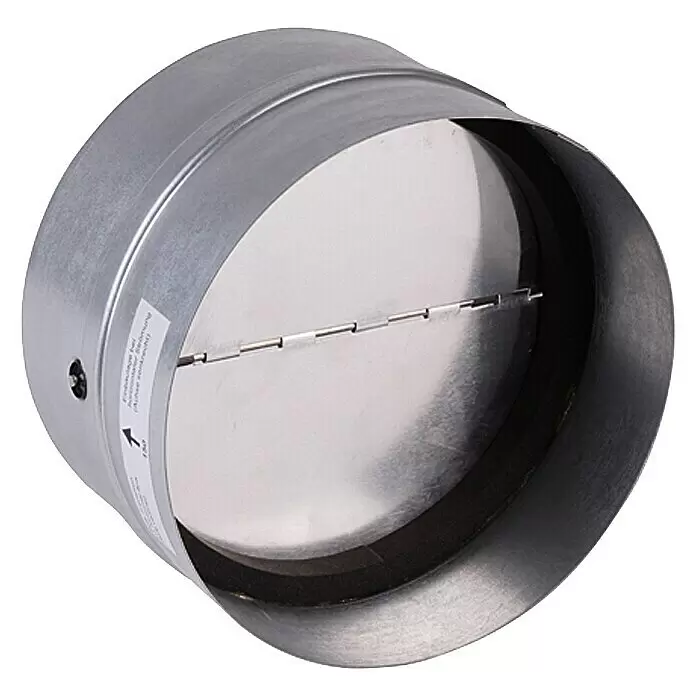This is a followup of my last post where I was looking for a solution to our problem with smell coming from the kitchen hood (extractor) when neighobour is cooking. I got many good suggestions, but @Finlsolo963 pointed me to Shut-off Damper with motor that looks like perfect fit. I hope it can stop the smell completely in closed position and open automatically when we start using hood.
I was looking at this Damper
I could use Shelly Plus Plug S to detect power usage of the hood which trigers Shelly 2.5 to open Damper. After turning off the hood, power will go down and automation would triger another channel of Shelly 2.5 to close the Damper.
What do you think about the setup? Is there any better hardware you would suggest? I dont mind spending more for beter sealing when Damper is closed. I like the one from the link mostly because its 220V and I could use shelly relays which seems super simple to implement. I already own Shelly Plug S that I could use, but its not a must. Im also opet to zigbee devices.
Bonus question: what would happen if something goes wrong and both channels of Shelly 2.5 triger at the same time? It would be like pressing Open and Close buttons at the same time.
Thanks in advance
Your Shelly 2.5 also has 2 inputs: SW1 and SW2. You could also wire one of those in to the hood so it can directly detect if it’s powered. If that’s possible… Idk, it needs to be after its switch. likely the hood isn’t made for this and you’d need to mess with the internal wiring. Your setup is a bit easier.
I’m not sure what happens if both channels are active simultaneously… Some devices handle this and prefer one direction, but not all of them. I can’t tell from the eBay page.
Thx
Damper from the link require both channels, one for opening and another one to close it. I could use another single channel shelly for the hood tho.
No, I mean for the input sensing. To see if someone pushed the switch for the hood… The shelly 2.5 has 2 outputs and 2 additional inputs for switches. You cant’t control a third device. But you can measure if there’s mains voltage on 2 additional inputs. If wired correctly to the switch of the hood… You can detect if it’s on and control the 2 damper channels all with one shelly 2.5
I think the 2 outputs are like controlling blinds. That’s a fairly common use-case for something like a shelly 2.5 and should work fine.
Ah I see what you mean. It would be cheaper if I dont need a 2nd device, but our hood has 3 position switch for different speeds. Its probably still posible to wire it somehow, but I dont know is it worth to mess around with the wiring and avoid warranty while 20€ device can make it more simple
Yes, it’s probobly not worth it. I wouldn’t know how to wire it to a 3 position switch, that’s not easy.
I just included the idea because it could be a cleaner solution. I mean there are edge-cases. For example with your setup, you can’t cook while the Wifi is down. That might or might not be a concern.
Thats true, but I would also add a manual rocker switch for that case. Better option would be custom electronics (like arduino or simmilar) that trigers without homeassistant, but thats probably too complex for my knowledge…maybe in the future, but first I need to find a working solution
Sounds good. Usually the simpler solutions are best. At least around the house in my experience.
@h3ndrik
The simpler the better: https://www.amazon.de/dp/B09F3PCPRM?tag=masterslave-steckdose-21&linkCode=ogi&th=1&psc=1That’d be the easiest solution. But I think it won’t work with this specific hardware, as it needs to close the damper with a separate 10s(?) pulse after the exhaust hood turned off.
Err, a standard damper closes automatically when you’re not using the hood. When you turn on the hood, the pressure opens it up and you’re good to go. Physics automation.
Yeah, I have this one right now

It stopps the smell 90%, so still stinks ater long cooking. I believe it goes trought tiny holes around the hinge. As I mentioned in previous post, I also added filter and still sucks.
Most motorized dampers I found are also spring loaded in closed position, but motors are DC 12V or 5V which seems to be more complex to implement than 220V one from ebay.


